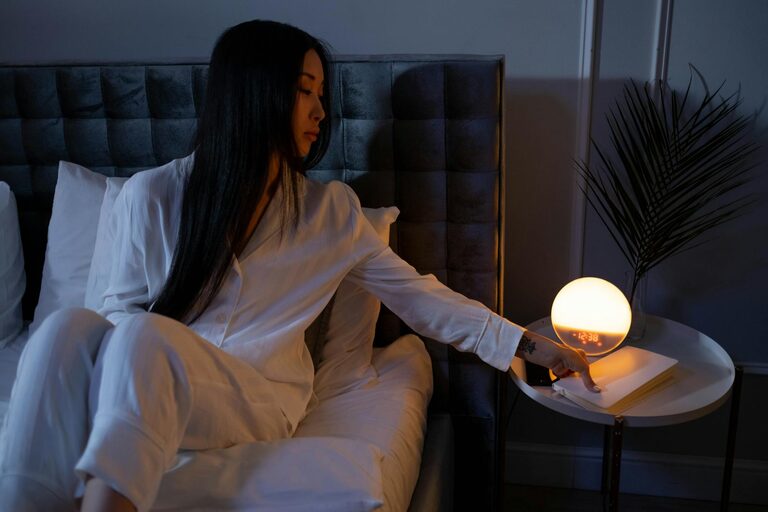Creating a calming evening routine can have a profound impact on your overall well-being. After a busy day, winding down with ease allows your mind and body to relax, improving sleep quality and setting a positive tone for the next day. While major lifestyle shifts can be overwhelming, small, intentional changes to your routine can bring noticeable benefits. In this post, we’ll explore simple, practical tips for crafting a more peaceful end to your day.
Why a Calmer Evening Routine Matters
In today’s fast-paced world, it’s easy to feel rushed or mentally cluttered by the time evening rolls around. This can make falling asleep difficult and reduce the quality of your rest. A calmer evening routine helps:
– Reduce stress and anxiety
– Signal to your body that it’s time to wind down
– Improve sleep quality and duration
– Enhance mood and energy for the next day
Start with a Consistent Bedtime
One of the most effective ways to support calmness at night is setting a consistent bedtime. Going to bed and waking up at the same times daily helps regulate your internal body clock. This consistency:
– Makes falling asleep easier
– Stabilizes your sleep cycles
– Creates a natural rhythm that supports relaxation
If you don’t already have a set bedtime, choose a realistic target that allows for 7–9 hours of sleep and stick to it. Avoid staying up late on weekends to keep the rhythm steady.
Dim the Lights to Signal Wind-Down Time
Light affects your body’s production of melatonin, the hormone that regulates sleep. Bright lights, especially from screens, can inhibit melatonin release and make your brain feel alert.
Try these light adjustments:
– Lower indoor lighting intensity an hour before bed
– Use lamps with warm, soft bulbs instead of overhead lights
– Avoid screens or use blue light filters in the evening
These small changes will help cue your brain that it’s time to relax and prepare for sleep.
Limit Screen Use and Digital Distractions
Electronic devices emit blue light, which can disrupt your sleep cycle. Moreover, engaging with social media, work emails, or news can increase mental stimulation.
Consider these strategies:
– Set a “digital curfew” about 60 minutes before bedtime
– Replace screen time with calming activities like reading a physical book or listening to soothing music
– Keep your phone away or on “Do Not Disturb” to minimize notifications
Reducing screen exposure in the evening calms your mind and improves sleep readiness.
Incorporate Gentle Movement or Stretching
Light physical activity in the evening, such as gentle yoga or stretching, can relieve muscle tension and promote relaxation.
Benefits include:
– Releasing physical stress built up through the day
– Encouraging mindfulness through slow, intentional movement
– Enhancing circulation to aid restful sleep
Keep the movements slow and avoid intense exercise close to bedtime, which may boost energy and make it harder to wind down.
Create a Relaxing Ritual
Having a predictable calming ritual signals your mind and body to slow down. This might include:
– Sipping herbal tea like chamomile or lavender
– Taking a warm bath or shower to relax muscles
– Practicing deep breathing or meditation for 5–10 minutes
– Journaling about the day’s positives or planning for tomorrow, to clear your mind
Choose a few calming activities that you enjoy and integrate them into your nightly routine consistently.
Pay Attention to Your Evening Environment
Your bedroom environment plays a key role in promoting calmness.
Focus on:
– Keeping your sleeping area tidy and clutter-free
– Using calming colors and soft textures for bedding and pillows
– Maintaining a comfortable temperature—usually slightly cool is best
– Minimizing noise with earplugs, white noise machines, or soft music
A peaceful space encourages a restful mind and body as you prepare to sleep.
Snack Wisely Before Bed
Certain foods can impact how easily you relax and fall asleep. Heavy meals, caffeine, and sugary snacks can interfere with rest.
Tips for better evening snacking:
– Avoid caffeine and large meals 2–3 hours before bedtime
– If hungry, opt for a light snack like a banana, almonds, or a small portion of yogurt
– Drink water but limit liquids close to bedtime to minimize nighttime bathroom trips
Nourishing your body gently supports calmness without disruptions during sleep.
Practice Gratitude or Mindfulness
Ending your day with gratitude or mindfulness can shift focus away from stress and towards positive feelings.
Simple ideas:
– Write down three things you’re thankful for before bed
– Reflect on a pleasant moment from the day
– Practice mindful breathing, concentrating on the sensations of each breath
– Use a guided sleep meditation app
These practices help ease racing thoughts and cultivate a peaceful mindset.
Final Thoughts
Building a calmer evening routine doesn’t require drastic changes. Small, consistent adjustments—like setting a regular bedtime, dimming lights, reducing screen time, and introducing relaxing rituals—can make a big difference in how you feel at night and throughout your day.
Experiment with these suggestions to discover what works best for your lifestyle. With time, you’ll notice better sleep, lower stress, and a more enjoyable end to each day.
Rest easy!

